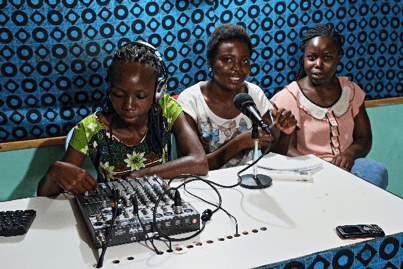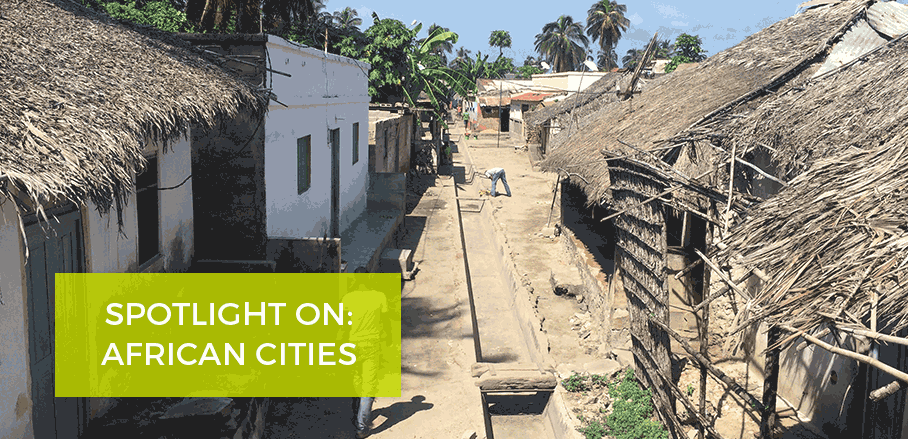Mozambique’s Stand-by Generation
by Joséphine Hébert
In the International Development world, “youth” constitutes a critical variable to look at in any given country. Policy makers believe that more educated generations with better health and economic conditions than their parents are the absolute precondition for achieving long-term economic and social development. They are also aware that a frustrated youth is a serious threat to political stability and economic growth.
However, “youth” is a very broad subject that could be tackled from numerous angles. In this opinion piece I am sharing my understanding of what makes Mozambican youth so promising. I certainly do not have a full and comprehensive knowledge of the conditions and expectations of all young Mozambicans. My point of view mainly embraces the stories of young urbanites, some of them being friends, colleagues, people from the civil society, young entrepreneurs, or simply strangers I observed during my stay in Maputo. Still, I think that all of them have significant stories to share that can say a lot about this country’s future.
In Mozambique, young people between 15 and 24 years of age represent around 20 percent of the country’s population. Together, they form a new generation, the first that was not confronted with colonisation or the 16-years-long civil war that devastated Mozambique until 1992. Statistics show that they enjoyed better access to education and health services than previous generations. As anywhere else in the world, they are also more connected and master the use of new media and social networks (this is mostly true in urban areas where about 35 percent of the total population currently resides; projections point to a share of 50 percent by 2040).
This generation has been significantly shaped by Mozambique’s economic boom at the beginning of the 21st century: they are full of hope for their future, better skilled than previous generations and importantly, more prone to self-critique than their parents regarding their relation with Mozambique’s history, politics and traditions. An interesting case in point of this evolution is the success of the film “Virgin Margarida” in 2012. Showing the dark sides of the construction of Mozambique as a nation, the film constitutes one of the first alternative narrative about the country’s recent history and therefore mainly thematises the youngest generations now questioning the FRELIMO’s official version of the story [2]United Nations International Children’s Emergency Fund (UNICEF), 2015. Child Marriage and Adolescent Pregnancy in Mozambique: Policy Brief. Available at:
http://www.unicef.org.mz/wp-content/uploads/2015/07/EN_Moz_Child_Marriage_aw-Low-Res.pdf.
New relations with traditions and with Mozambique’s recent past also impact gender inequalities. Indeed, colonial times and FRELIMO’s ideal of “the good Mozambican Woman” shaped very conservative roles for women and left few spaces for proper education and independence. Today, the relationship between traditional structures and the empowerment of women and girls is still challenging, but young women are studying and are eager to be independent and to succeed in their career. Of course, gendered violence, child marriage, teenage pregnancy and all kinds of gender-based prejudices exist and are a strong preoccupation. For women, formal access to land and employment is much more limited than for men. Even though the big changes are happening in the capital Maputo, and are mostly limited to privileged middle-class girls, things are also slowly changing in terms of legal reforms, sociocultural change and improved economic prospects for families in the rest of the country [4]The Mozambique Liberation Front (Frente de Libertação de Moçambique -FRELIMO) is the political party that fought for the independence and ruled it without interruption since 1974..
However, in contrast to the expectations of rapid development and the significantly higher standards of living created during the last decade, this promising generation is now facing massive unemployment against the backdrop of latent military conflict between the FRELIMO and the main opposition party, political scandals of corruption and nepotism and sharp economic crisis with high unemployment and inflation rates. This somewhat undermines the promise of a better future [5]Hanlon, Joseph, 2017. “Mozambique fell prey to the promise of fabulous wealth – now it can’t pay nurses”, in The Guardian, available at: https://www.theguardian.com/global-development/2017/jan/27/mozambique-fabulous-wealth-gas-reserves-pay-nurses-debt-crisis
. Indeed, a hidden-debt scandal became public during the summer of 2016, involving high state and FRELIMO officials and impacting foreign investors and international organisations’ trust. The government contracted several loans illegally (i.e. without the approval of the Parliament) to finance newly created stated-owned companies, such as the fishing company EMATUM. Investigation revealed that boats bought for fishing activities never left Maputo’s port and the opposition suspects that it covers unofficial military interventions of the FRELIMO against its rival party, the RENAMO. Due to a sharp decrease in international gas’ prices, the State was not able to reimburse, which the government had to recognise publicly. The World Bank estimates that the scandal has halved economic growth in the country in 2016 [6]The World Bank, 2016. Mozambique Economic Update – Facing Hard Choices. Available at: http://documents.worldbank.org/curated/en/334311481183208191/pdf/110817-REVISED-PUBLIC-Digital-MEU-2016.pdf. The local currency (“Metical”) lost almost half of its value, change reserves decreased dramatically and inflation exploded, strongly impacting Mozambicans’ living standard.

The scandal gives young people in Mozambique the impression that power is kept within the hands of war veterans and of the economic elite. As a result, social media now challenges official communication channels such as TV news or the journal “Notícias”, and criticises a corrupt elite that owns most of the country’s economic assets. Young people cannot help but denounce the gap between the emerging middle class youth that struggles for employment and habitat, and the sons and daughters of the very privileged families who are frequently caught wasting incredible amounts of money on villas, cars and parties. With 73.1 percent of young men and 56.6 percent of young women using mass media [7]United Nations International Children’s Emergency Fund (UNICEF), 2013. Mozambique Country Statistics, available at: https://www.unicef.org/infobycountry/mozambique_statistics.html, such as Facebook and WhatsApp. Anonymity and informality characterizing these canals favour the development of blogs and alternative online journals such as “A Verdade” that are now flourishing on the web as spaces of information, but also of expression.
Now, how does Mozambican youth cope with these challenges? Sadly, poor education and poverty still influence the action capacity of young women and men, especially in rural areas. Nevertheless, in Maputo, youth engagement is strong and diverse, and young Mozambicans are working to build themselves the future that was once promised to them. This is especially true for the youth of Maputo’s urban periphery such as the Mafalala or Maxaquene neighbourhoods, which now struggles for the recognition and valorisation of its history and identity through arts, tourism and local entrepreneurship.
Gathering students and young entrepreneurs, cities provide good conditions for youth activism. Youth movements are usually organised in associations, which often manage to be formally recognised as such by the state. For instance, the Youth Parliament (Parlamento Juvenil) achieved the right to assist in parliamentary sessions and its members are well-trained advocates who do not hesitate to participate in deliberations. Youths’ political involvement also encompasses non-recognised or even illegal activities. LAMBDA, for example, is an organisation fighting for the recognition of LGBT rights in Mozambique. After a years-long judiciary battle, they failed to obtain state recognition. Nevertheless, two years ago, they achieved the decriminalisation of homosexuality.

More punctual and political mobilisations also occur. After the debt scandal in 2015/2016 and the following economic decline, protests were organised illegally, probably by a group of students. The call for mobilisation was not attached to any particular political groups, and the flyers (see illustrations below) indicated a sensibility to modern means of communication, very different from the usual methods of well-established political organisations. During the last two weeks of April 2016, calls for strikes and demonstrations circulated through the messaging-service WhatsApp and the authorities took it seriously enough to send the army into Maputo’s streets on April 29th. Previously, protests against the assassination of Gilles Cistac [3]Gilles Cistac was a French and Mozambican lawyer and professor at the Eduardo Mondlane University. He was also a key figure of the civil society and a vehement advocate of decentralization, which is believed to be the reason why he was shot dead in 2015 or against the increase of the bread price in 2008 and 2010 also took form through SMS, Facebook and social media.

A number of young women and men are also involved in civil society organisations such as Kuyanakanha, a group of young actors organising plays on public health, gender-based violence, or land speculation and the dangers of the informal selling of land plots. Indeed, numerous households lost their land after signing a contract that they were not able to read. The selling of land is officially illegal in Mozambique where plots are allocated by the State to their occupants. Buyers hence frequently resort to informal arrangements with no solid guarantees for sellers.
Young people migrating temporarily to cities are especially targeted by scammers. Strong reactions of the audience confirm the capacity of such groups to raise awareness among their peers. Other young people get involved in local media and manage community radios, showcasing similar issues in Portuguese and in Changana thanks to SoundCloud, Twitter and YouTube.
The challenges that pose serious threats to the future of many young people in Mozambique —among them the gap between rural and urban areas, the level of unemployment and the lack of access to services and housing — are enormous. Nevertheless, counting on their dynamism and supporting their engagement may be critical for the long-term development perspectives of the country.
- Mozambique’s Stand-by Generation - 13. April 2017
